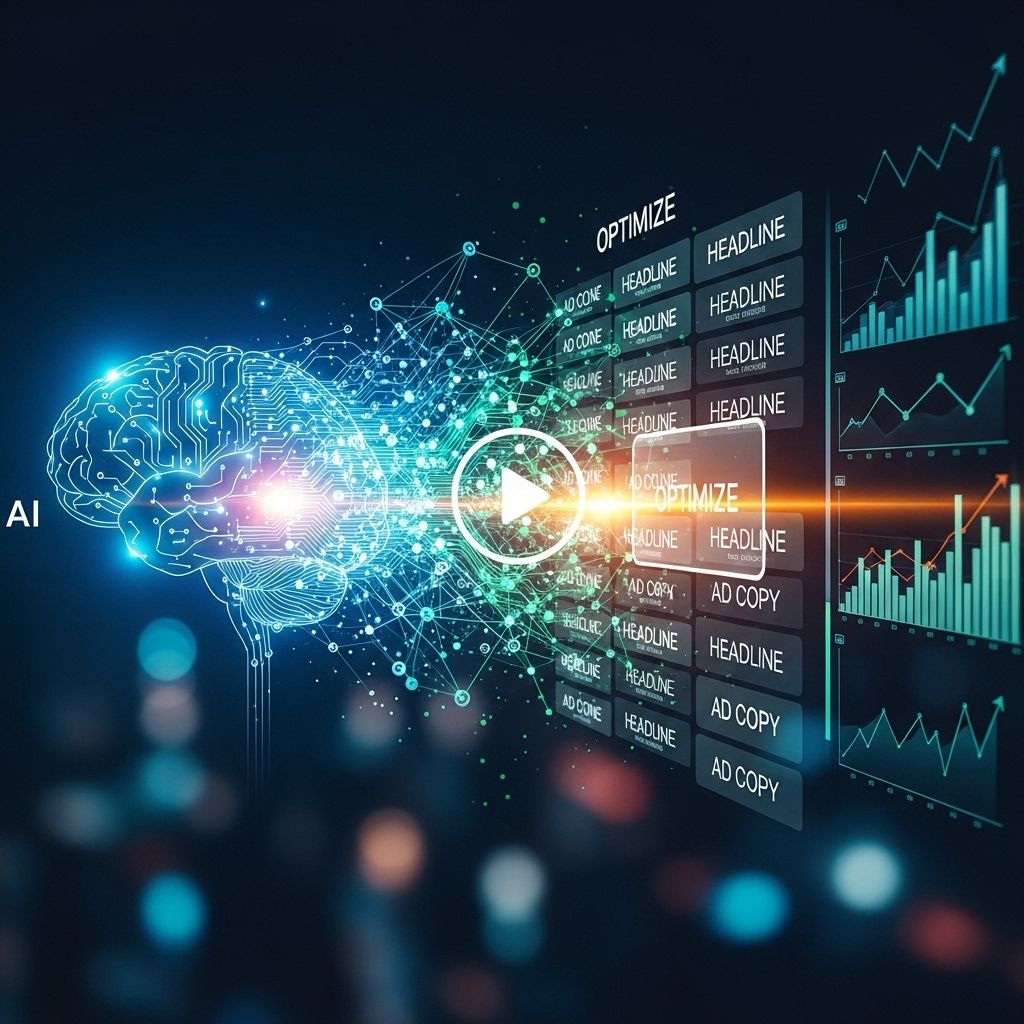Transform Your Multivariate Testing with AI-Powered Ad Copy
Discover how AI can enhance your multivariate testing strategies for more effective ad copy and improved conversion rates.

In the ever-evolving landscape of digital marketing, traditional methods of multivariate testing are being transformed by the advent of artificial intelligence. Marketers are finding themselves at a crossroads where data-driven decision-making meets cutting-edge AI technology. This convergence not only enhances the efficiency of ad campaigns but also allows for unprecedented levels of personalization and optimization. This article dives deep into how AI is revolutionizing multivariate testing in ad copy, enabling marketers to achieve better results and maximize their return on investment.
Table of Contents
The Basics of Multivariate Testing
Before exploring the impact of AI on multivariate testing, it’s essential to understand what multivariate testing entails. This method involves testing multiple variables simultaneously to determine which combination performs the best. Unlike A/B testing, which compares two variations, multivariate testing allows for:
- Testing multiple elements at once, such as headlines, images, and calls to action.
- Understanding the interaction between different variables.
- Identifying the optimal combination of elements to drive conversions.
Key Components of Multivariate Testing
Successful multivariate testing relies on a few key components:
- Hypothesis Formation: Start with a clear hypothesis based on existing data.
- Variable Selection: Choose the variables to test carefully, ensuring they align with your goals.
- Sample Size: Ensure you have enough traffic to achieve statistically significant results.
- Data Analysis: Use robust methods for analyzing results to identify winning combinations.
Integrating AI in Multivariate Testing
AI is a powerful ally in enhancing the multivariate testing process. By leveraging AI algorithms, marketers can analyze vast amounts of data much faster than traditional methods allow. Here are some of the ways AI is being integrated into multivariate testing:
Predictive Analytics
AI uses historical data to predict future outcomes, enabling marketers to adjust their strategies proactively. Predictive analytics can:
- Identify trends in consumer behavior.
- Forecast which combinations of ad elements are likely to perform well.
- Optimize ad placements based on audience segments.
Automated Testing
Automation is a significant advantage of using AI in multivariate testing. Automated testing processes can:
- Run tests continuously without manual intervention.
- Adjust variables in real-time based on performance.
- Reduce the time and resources spent on testing.
Enhanced Data Analysis
AI-driven analytics tools can process large data sets quickly, providing insights that would take humans significantly longer to uncover. This includes:
- Using machine learning algorithms to analyze complex data patterns.
- Generating reports with actionable insights.
- Offering recommendations for future campaigns based on past performance.
Benefits of Using AI in Multivariate Testing
Implementing AI into your multivariate testing strategy offers numerous benefits, including:
| Benefit | Description |
|---|---|
| Increased Efficiency | Reduces the time required to set up and run tests. |
| Enhanced Accuracy | Minimizes human error and biases, leading to more reliable results. |
| Scalability | Allows for scaling testing efforts across multiple campaigns simultaneously. |
| Real-time Adaptation | Enables immediate adjustments based on live data, optimizing performance continuously. |
| Greater Insights | Provides deeper, data-driven insights that inform broader marketing strategies. |
Challenges and Considerations
While the integration of AI in multivariate testing offers tremendous benefits, there are also challenges and considerations to keep in mind:
Data Privacy and Security
With the increasing focus on data privacy, marketers must ensure compliance with regulations such as GDPR and CCPA. Best practices include:
- Obtaining explicit consent from users for data collection.
- Implementing robust data security measures to protect user information.
Understanding AI Limitations
While AI is powerful, it is not infallible. Marketers should be aware of the limitations, such as:
- Potential biases in AI algorithms that can skew results.
- The need for quality data; poor data leads to poor insights.
Skill Requirements
Marketers must possess or develop skills in AI tools and data analysis to make the most of these advanced techniques. This may require:
- Investing in training programs for marketing teams.
- Hiring specialists who understand AI and analytics.
Final Thoughts
As digital marketing continues to evolve, the incorporation of AI into multivariate testing represents a significant leap forward. By embracing these technologies, marketers can enhance their ability to make data-driven decisions, increase campaign performance, and ultimately drive better business results. With the right strategies in place, the future of multivariate testing looks bright, paving the way for more intelligent and effective advertising.
FAQ
What is multivariate testing in digital marketing?
Multivariate testing is a method used to test multiple variables simultaneously to determine which combination performs best in achieving a specific goal, such as increased conversions or engagement.
How can AI enhance multivariate testing?
AI can analyze vast amounts of data quickly, identify patterns, and optimize ad copy variations in real-time, leading to more effective multivariate testing outcomes.
What are the benefits of using AI for ad copy in multivariate testing?
Using AI for ad copy allows for personalized messaging, faster insights, improved targeting, and the ability to adapt campaigns based on real-time performance metrics.
Can AI generate ad copy for multivariate testing?
Yes, AI can generate multiple ad copy variations based on audience insights and historical data, streamlining the multivariate testing process.
What types of variables can be tested in multivariate testing?
In multivariate testing, you can test various elements such as headlines, images, calls to action, and overall layout to find the most effective combination.
How do I implement AI-driven multivariate testing in my marketing strategy?
To implement AI-driven multivariate testing, utilize analytics tools that incorporate AI capabilities, define your goals, create diverse ad copy variations, and continuously monitor performance for optimization.








